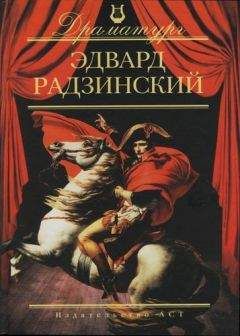Илья Франк - Английский язык с Р.Л. Стивенсоном. Остров сокровищ
тетива), and the current so strong she pulled upon her anchor (и течение таким
сильным, что шхуна натягивала якорь = стремилась сорваться с якоря). All
round the hull, in the blackness (вокруг корпуса, в черноте), the rippling current
bubbled and chattered like a little mountain stream (отлив клокотал и журчал,
как маленький горный поток; rippling current — течение против ветра; to
ripple — покрываться рябью, колебаться). One cut with my sea-gully (один
удар моим морским ножом; gully — овраг, лощина, большой нож), and the
Hispaniola would go humming down the tide (и Испаньола помчится с
течением; to hum — жужжать).
3. So far so good (пока все хорошо); but it next occurred to my recollection (но
затем я вспомнил; to occur to — прийти в голову; recollection —
Мультиязыковой проект Ильи Франка www.franklang.ru
484
воспоминание, память) that a taut hawser, suddenly cut (что туго натянутый
канат, вдруг перерезанный; taut — туго натянутый, упругий), is a thing as
dangerous as a kicking horse (такая же опасная вещь, как и брыкающаяся
лошадь = может ударить с силой лошадиного копыта). Ten to one (почти
наверняка: «десять к одному»), if I were so foolhardy as to cut the Hispaniola
from her anchor (если я буду таким безрассудно храбрым, чтобы отрезать
Испаньолу от якоря = перерубить канат), I and the coracle would be knocked
clean out of the water (я вместе с лодкой буду «начисто выбит из воды» =
перевернут; to knock out — выбить, вывести из строя; clear — начисто,
прямо, совершенно).
hawser [`hLzq] taut [tLt] mountain [`mauntIN] dangerous [`deInGqrqs]
1. First she loomed before me like a blot of something yet blacker than
darkness, then her spars and hull began to take shape, and the next moment,
as it seemed (for, the further I went, the brisker grew the current of the ebb), I
was alongside of her hawser, and had laid hold.
2. The hawser was as taut as a bowstring, and the current so strong she pulled
upon her anchor. All round the hull, in the blackness, the rippling current
bubbled and chattered like a little mountain stream. One cut with my sea-
gully, and the Hispaniola would go humming down the tide.
3. So far so good; but it next occurred to my recollection that a taut hawser,
suddenly cut, is a thing as dangerous as a kicking horse. Ten to one, if I were
so foolhardy as to cut the Hispaniola from her anchor, I and the coracle would
be knocked clean out of the water.
Мультиязыковой проект Ильи Франка www.franklang.ru
485
1. This brought me to a full stop (это меня полностью остановило), and if
fortune had not again particularly favoured me (и если бы судьба не была вновь
особенно благосклонна ко мне), I should have had to abandon my design (мне
бы пришлось отказаться от своей затеи; to abandon — покидать, бросать;
отказываться). But the light airs which had begun blowing from the south-east
and south (но легкие ветерки, начавшие дуть с юго-востока и юга) had hauled
round after nightfall into the south-west (изменили направление после
наступления ночи на юго-западное). Just while I was meditating (и пока я
размышлял; to meditate — затевать, обдумывать), a puff came, caught the
Hispaniola (шквал налетел, подхватил Испаньолу), and forced her up into the
current (и заставил ее идти вверх = против течения); and to my great joy (и к
моей большой радости), I felt the hawser slacken in my grasp (я почувствовал,
что /натяжение/ каната ослабло в моей руке; grasp — хватка, зажим), and the
hand by which I held it dip for a second under water (и рука, которой я держал
его, погрузилась на мгновение под воду).
2. With that I made my mind up (с этим = тут я принял решение), took out my
gully (достал нож), opened it with my teeth (открыл его зубами), and cut one
strand after another (и /принялся/ перерезать одно волокно за другим), till the
vessel swung only by two (пока судно /не осталось/ держаться только на двух;
to swing — качать, висеть. поворачиваться). Then I lay quiet (затем я
отпустил канат), waiting to sever these last (ожидая /момента/, чтобы
перерезать эти последние /волокна/; to sever — разъединить, оторвать,
отсечь) when the strain should be once more lightened by a breath of wind (когда
дуновение ветра снова ослабит натяжение).
favoured [`feIvqd] hauled [hLld] slacken [`slxkqn] gully [`gAlI] lightened
[`laItnd]
Мультиязыковой проект Ильи Франка www.franklang.ru
486
1. This brought me to a full stop, and if fortune had not again particularly
favoured me, I should have had to abandon my design. But the light airs
which had begun blowing from the south-east and south had hauled round
after nightfall into the south-west. Just while I was meditating, a puff came,
caught the Hispaniola, and forced her up into the current; and to my great
joy, I felt the hawser slacken in my grasp, and the hand by which I held it dip
for a second under water.
2. With that I made my mind up, took out my gully, opened it with my teeth,
and cut one strand after another, till the vessel swung only by two. Then I lay
quiet, waiting to sever these last when the strain should be once more
lightened by a breath of wind.
1. All this time I had heard the sound of loud voices from the cabin (все это время
я услышал звук голосов /доносившийся/ из каюты); but, to say truth (но,
сказать по правде), my mind had been so entirely taken up with other thoughts
(мой разум был полностью поглощен другими мыслями) that I had scarcely
given ear (что я едва мог слушать; to give ear to — выслушать). Now, however,
when I had nothing else to do (теперь, однако, когда мне нечего было делать), I
began to pay more heed (я начал обращать больше внимания /на разговор/).
2. One I recognised for the coxswain's, Israel Hands (я узнал /голос/ рулевого,
Израэля Хендса), that had been Flint's gunner in former days (который был
канониром Флинта в былые дни). The other was, of course, my friend of the red
night-cap (другим был, конечно, мой приятель в красном колпаке). Both men
were plainly the worse of drink (оба матроса были, очевидно, совершенно
пьяны; the worse — худшее), and they were still drinking (и все еще пили); for,
even while I was listening (потому что, пока я слушал), one of them, with a
drunken cry (один из них с пьяным криком), opened the stern window and threw
out something, which I divined to be an empty bottle (открыл кормовой
Мультиязыковой проект Ильи Франка www.franklang.ru
487
иллюминатор и выбросил что-то, что я определил как пустую бутылку; to
divine — предсказать, предполагать). But they were not only tipsy (но они
были не только под градусом; tipsy — подвыпивший); it was plain that they
were furiously angry (было очевидно, что они яростно ссорились; to be angry
— сердиться, злиться). Oaths flew like hailstones (ругательства сыпались
градом: «летели, как градины»), and every now and then there came forth such
an explosion (и то и дело происходила такая вспышка /гнева/; to come forth —
выступать, показываться; explosion — взрыв) as I thought was sure to end in
blows (что я был уверен, что /дело/ дойдет до драки: «ударов»; to end in —
кончиться, привести к). But each time the quarrel passed off (но каждый раз
ссора прекращалась), and the voices grumbled lower for a while (и голоса
ворчали тише какое-то время), until the next crisis came (пока не наступал
следующий критический момент), and, in its turn, passed away without result (и,
в свою очередь, /также/ прекращался безрезультатно).
entirely [In`taIqlI] divined [dI`vaInd] explosion [Ik`splquZn] quarrel [`kwOrql]
1. All this time I had heard the sound of loud voices from the cabin; but, to
say truth, my mind had been so entirely taken up with other thoughts that I
had scarcely given ear. Now, however, when I had nothing else to do, I began
to pay more heed.
2. One I recognised for the coxswain's, Israel Hands, that had been Flint's
gunner in former days. The other was, of course, my friend of the red night-
cap. Both men were plainly the worse of drink, and they were still drinking;
for, even while I was listening, one of them, with a drunken cry, opened the
stern window and threw out something, which I divined to be an empty bottle.
But they were not only tipsy; it was plain that they were furiously angry.
Oaths flew like hailstones, and every now and then there came forth such an
Мультиязыковой проект Ильи Франка www.franklang.ru
488
explosion as I thought was sure to end in blows. But each time the quarrel
passed off, and the voices grumbled lower for a while, until the next crisis
came, and, in its turn, passed away without result.
1. On shore, I could see the glow of the great camp fire (на берегу я видел зарево
большого бивачного костра) burning warmly through the shore-side trees
(горячо пылавшего между прибрежными деревьями). Someone was singing, a
dull, old, droning sailor's song (кто-то пел скучную старую монотонную




